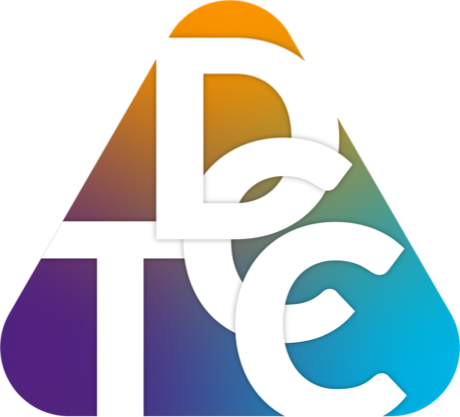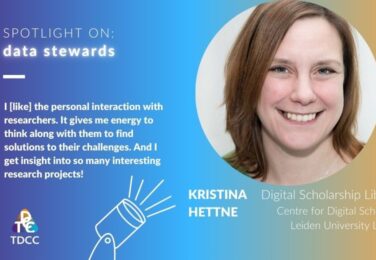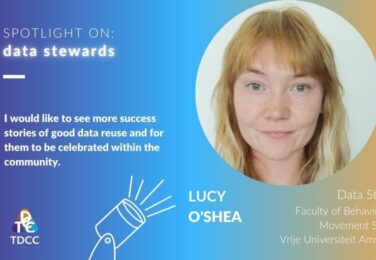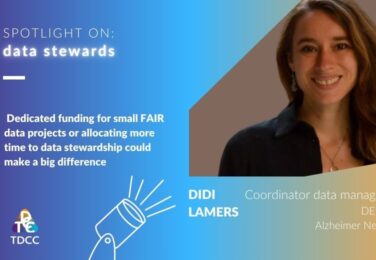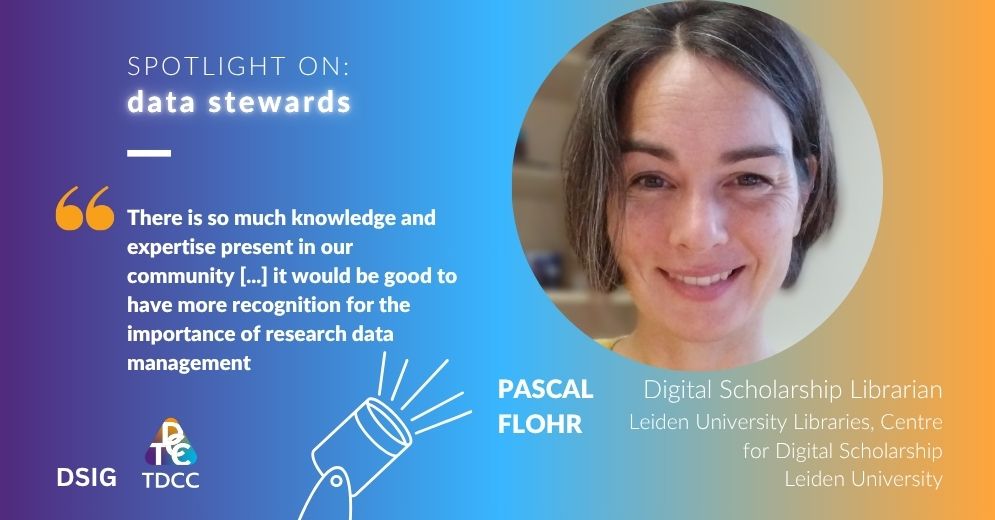
Spotlight on: Pascal Flohr
Every other week, the Thematic DCCs and the Data Steward Interest Group (DSIG) put the spotlight on one research data steward working in the Netherlands to stimulate knowledge exchange and peer-to-peer learning.
What drew you towards the research data management field?
When I became part of the EAMENA project, in which we were setting up and filling a large database with archaeological data, I started thinking much more about research data management questions. For example, which terms should we use to capture as much information as possible but also keep it simple enough to not end up with endless fields and terms and keep it understandable for everyone? We also trained other archaeologists in database and GIS skills, which I enjoyed doing. In a following postdoc, I then noticed that not much attention was paid to good data management, leading to extra work and other issues. Instead of just trying to improve it in that one research group, I thought it would be good to try to help more people with it.
What is an activity/task of your role that you find yourself looking forward to?
Giving training or teaching gives me a lot of energy. I like the interaction with the researchers, students, and other research data professionals. With researchers, it is interesting to hear about their research and challenges, and to think of the easiest ways of improving their RDM to help them with these challenges. Even if they have to be there mandatorily or "have no data", in the end they often write that they found the training useful and can use at least some aspects in their work. When I started working in RDM, I found out so many things that I wished someone had told me about during my studies or PhD, so I am really glad when I can do that now. Workshops with other research data professionals are also always very inspiring, and even when I am the trainer there, I tend to end up learning a lot myself.
What is something unexpected that you can offer help with, if a colleague reaches out to you?
So I used to be a researcher in archaeology and especially because of the database project I was part of, there are quite a few -maybe you could say more applied- data management or data analysis tasks or tools that I know how to use, like QGIS, ArcGIS or R. Because of that project but also because of my work at DANS, I also know quite a bit about semantic interoperability, like which thesauri or vocabularies to use (although the latter probably mostly related to archaeology...).
What do you think your community of research data professionals is missing?
It has been mentioned before in this series, and I completely agree with Angelica Maineri that there should be more recognition. There is so much knowledge and expertise present in our community that the average researcher does not have. Also, it would be good to have more recognition for the importance of research data management: It would be great if more data management time or specific data management roles were written into research projects, for example. That would then also perhaps help with the issue of recognition, since there would be practical help with data management instead of 'just' advice, which is often all we have time for now.
What is a topic you would want to collaborate on with others?
There are so many things I would like to work on, and all together with others ideally! At the moment, I am working with Adam Benfer on the topic of sharing location data, and I am starting to look into sharing field notes. With colleagues here in Leiden, we are also looking into what roles and responsibilities of central and/versus faculty- or institute-based data stewards. So if anyone is interested in these topics, please reach out.
How would you like to see your current field of work evolve in the next 5 years?
Hopefully, research data management will become more ingrained in student curricula, just a normal part of the methodology everyone is learning about. PhD courses and advice to researchers would probably still be needed, but might then become more in-depth or specific.
Get in touch with Pascal on LinkedIn and ORCID
Do you want to read other interviews published in the Spotlight on series? Visit the series' page.
Are you a data steward or data professional who wants to be featured in one of the future editions? Fill out this form.
